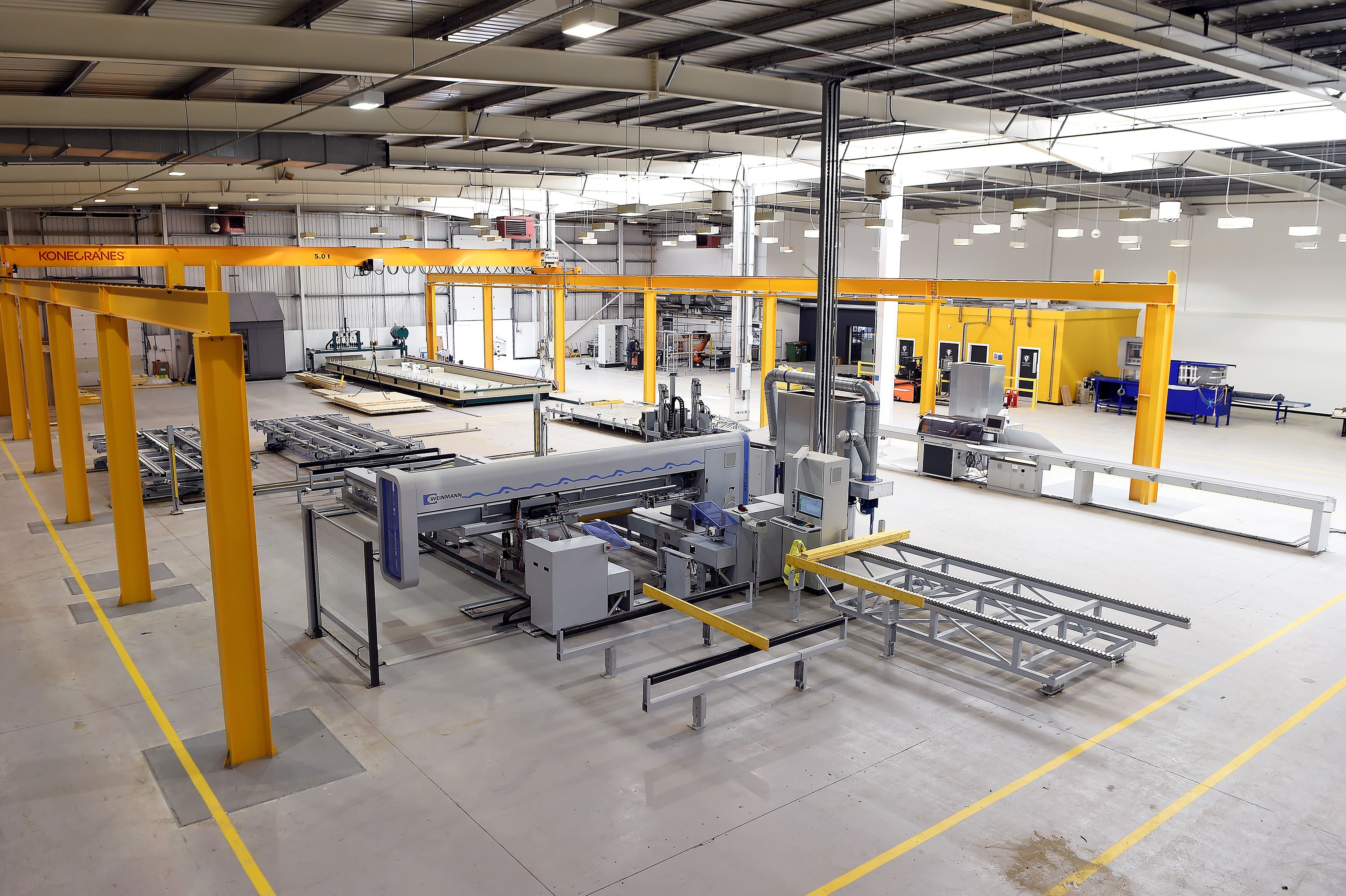Content
CSIC receives almost £11m of funding to support innovation revolution in Scottish construction sector

Funding boost expected to support 1,800 new jobs and £998m turnover boost by 2024
The investment from the Scottish Funding Council, Scottish Enterprise and Highlands and Islands Enterprise will allow CSIC to build on the foundations of a highly successful first five years and support its Phase 2 mission to mainstream innovation in construction, leading to improved productivity and growth within the sector.
It is expected that over the next five years, the funding will support the construction sector to deliver £998m of additional gross turnover, create 1,847 new jobs and retain 4,721 existing jobs.
Scotland’s construction industry and its supply chain currently employs over 170,000 people with up to a further 60,000 self-employed workers - 10% of the Scottish workforce. It contributes £21.5bn to Scotland’s GDP, and makes up 10% of Scotland’s GVA. For every £1 spent on construction output, a further £2.94 is generated in the economy.
CSIC is one of eight industry led and demand driven Innovation Centres in Scotland and provides the construction sector and its clients with a ‘single entry point’ to a range of innovation support solutions including academic expertise, R&D funding, cutting-edge technology and access to a range of wider public sector innovation products and services.
Launched in 2014 with initial funding of £7.5m from the Scottish Funding Council, CSIC’s mission for its first five years (Phase 1) was to connect the construction industry with academia and build a culture of innovation that drives transformational change and delivers economic impact for Scotland.
CSIC has exceeded its Phase 1 targets, supporting 236 innovation projects from over 780 enquiries, with a total value of £10.7m,which industry predicts will lead to 262new products, processes, services or business models going to market, create over 1,200 new jobs and lead to an additional £738m of revenue over the next 5 years. It has also built a digital community of over 3,000 engaged industry innovators, 60 innovation champions, funded 56 MSc students and expanded to include a network of 14 university partners.
Another key milestone from Phase 1 was the creation of industry’s Innovation Factory in Hamilton, which launched in September 2017 and has supported over 40 commercial and pilot projects so far. The Innovation Factory provides an open access, low cost, safe environment for collaborating partners to access £2m of state-of-the-art production and prototyping equipment and technology.
Over the next five years (Phase 2), CSIC’s activities will fall under four key areas:
- Culture Change– focussing on the cultural barriers across the industry and addressing issues like new innovative procurement models, diversity and inclusion, internationalisation, collaboration, productivity and investment in R&D and innovation.
- Digital Transformation– focussing on the digital and data technologies that offer the greatest potential to unlock growth across the industry.
- Accelerating Industrialisation– focussing on industrialisation and manufacturing opportunities including offsite, robotics, and design for manufacturing and assembly that will drive productivity, quality and efficiency measures across the industry.
- Building Sustainably – focussing on the industry factors related to energy and de-carbonisation, design for an ageing society, smart and sustainable materials and the circular economy.
Phase 2 plans also aim to build the Innovation Factory into a ‘national asset’ for Scotland, ensuring it engages effectively with initiatives like the National Manufacturing Institute for Scotland and the UK Construction Innovation Hub network.
The construction industry is on the verge of a digital and manufacturing revolution. Phase 1 saw CSIC establish itself and focus on building an innovation culture, and we’ve succeeded in creating a solid foundation around that. With this next phase of funding support in place, we can help scale-up and mainstream innovation within the sector, which in turn will unlock growth. However, for the next phase to be as successful as it can be, we need industry and its clients, both public and private, to really step up and drive that revolution forward through investing in innovative, collaborative projects which draw on academic expertise to unlock key opportunities. At the heart of any change programme sits committed people and by working together, the future for the construction sector is very bright indeed. It’s encouraging to see that stakeholders are recognising the growing importance of the construction sector to the Scottish economy, which is reflected in the increase in core funding from £7.5m in Phase 1 to almost £11m, and the fact that instead of the one core funding partner (Scottish Funding Council) which we had in Phase 1, we now have three. Working more closely with Scottish Enterprise and Highlands & Islands Enterprise will also allow us to offer construction companies access to a wider range of services and public sector innovation support, with CSIC acting as a single point of entry to help simplify the process. Stephen GoodChief executive of CSIC
The construction industry is a core sector of the Scottish economy, providing infrastructure to businesses across all sectors of the economy. Our vision is for a Scotland where innovation is an intrinsic part of our culture, our society and our economy. This relies on a pipeline of knowledge and skills from universities, colleges and research institutes. Fostering connections between the worlds of industry and academia is vital in making that vision a reality for the construction sector as in others. This £10.98 million funding from the Scottish Government, via the Scottish Funding Council and the Enterprise Agencies, will allow the CSIC to continue its excellent work and important activities in the innovative construction landscape, to the benefit of the whole of Scotland and beyond. Richard LochheadMinister for Further Education, Higher Education and Science





